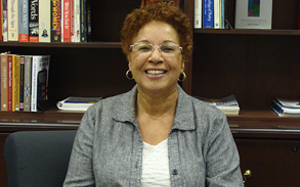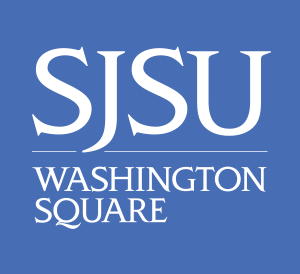Unlocking Literature

Self-described “Army brat” Durthy A. Washington, ’86 MA English, current director of the U.S. Air Force Academy’s Writing Center in Colorado Springs, has lived in Japan, studied in Senegal, West Africa, and served as a cadet escort in Ghana. Born in Germany, she spoke German until she came to the U.S. at age seven and was “thrown into an American school to sink or swim.” Learning English was a struggle, she admits, but eventually she “came to love the challenges and idiosyncrasies” of her second language.
During her word-rich career, she’s been a tech writer at Signetics Corporation and National Systems & Research Corporation, a textbook editor, a freelance journalist, and a CliffsNotes author for Toni Morrison’s Song of Solomon, Ernest Gaines’s A Lesson Before Dying, Ralph Ellison’s Invisible Man, and Harriet Jacobs’s Incidents in the Life of a Slave Girl. But it was as an educator, at the academy and elsewhere, that she recognized a fundamental flaw in the teaching of multicultural literature.

Image courtesy of Durthy A. Washington
“All too often, the teaching of multicultural literature devolves into a discussion of diversity … reducing a creative work of fiction to a sociological case study,” she says. “Conversely, students may read non-traditional texts through the traditional lens of Western Eurocentric culture.” Neither approach provided the framework for teaching literature that Washington sought. To address the shortcoming, she developed The LIST Paradigm.
The LIST Paradigm explores four “keys to culture” (language, identity, space and time) that help to “unlock” the meaning of a text and personally connect a student to a piece of literature. Race, culture and ethnicity become part of the discussion. Critical reading becomes a matter of both literary analysis (plot, theme, characters) and literary criticism (cultural or historical perspective). Over the past 10 years, Washington has used The LIST Paradigm to teach mainstream and “minority” texts in workshops at universities and in seminars hosted by the American Literature Association (ALA), the Society for the Study of Multi-Ethnic Literatures of the U.S. (MELUS), the Toni Morrison Society and others. Her pioneering work has been recognized with a Literary Research Award from USAFA’s Department of English and Fine Arts and an Outstanding Academy Educator Award. She is completing a textbook on The LIST Paradigm as a resource for teachers.
“I believe the college classroom should be a sanctuary where students can explore a broad spectrum of issues, ideas and concepts that challenge them to think creatively and to examine their role as productive, contributing members of society,” Washington says.
Great literature can nourish the soul and inspire us to become better human beings.”



